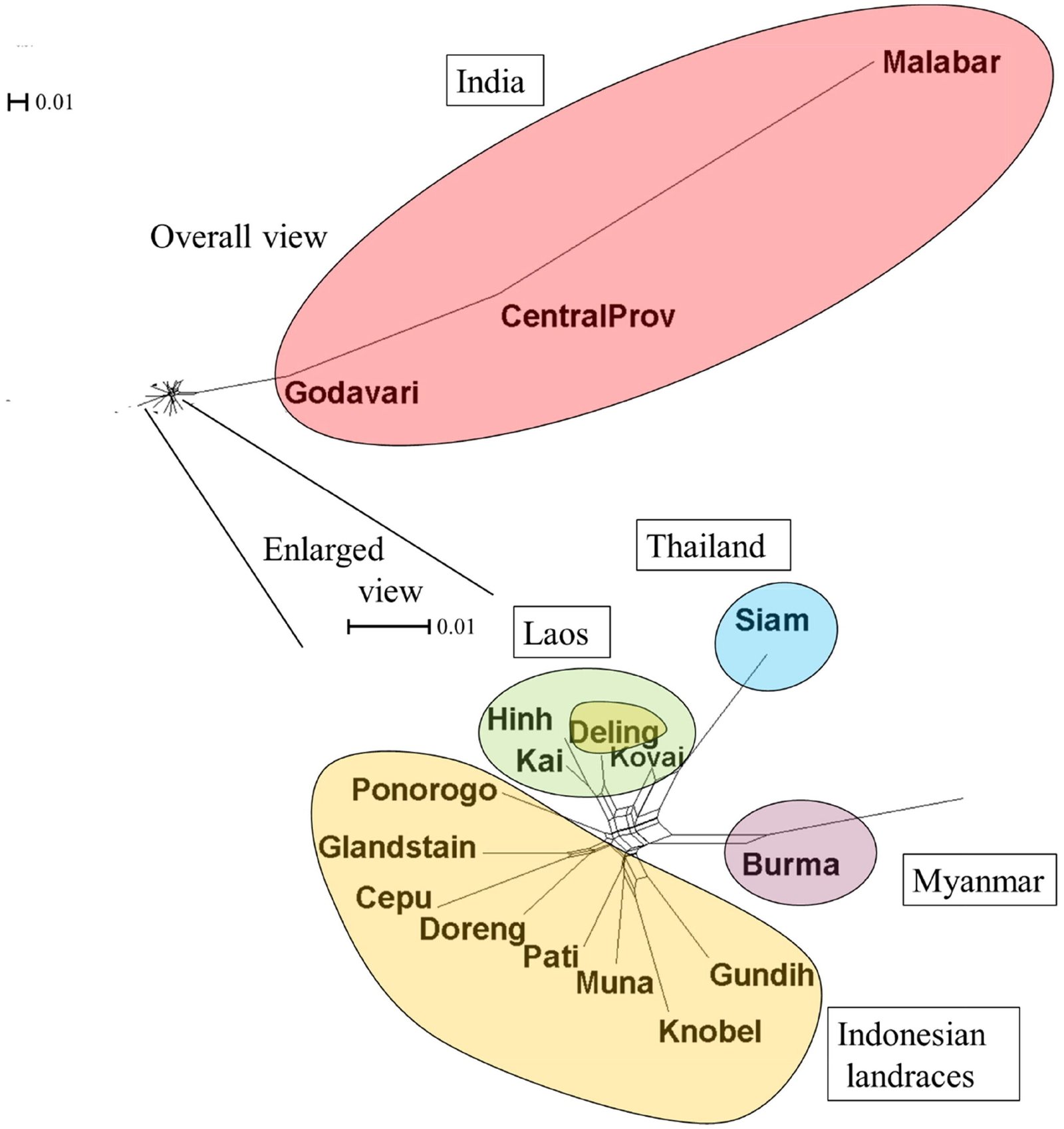
Climate change is significantly affecting forest ecosystems through rising temperatures, altered precipitation patterns, and increased frequency of extreme weather events. Tropical forests are particularly vulnerable to these changes, and the forestry sector is expected to experience severe effects due to the long-lived and stationary nature of trees, which require decades from planting to harvest.
Consequently, assessing the adaptability of tree species and populations to environmental factors such as temperature and integrating this knowledge into early-stage afforestation plans for enhancing resilience to climate change is critical.
Teak is a valuable tree species known for its use in furniture and other applications. It is naturally distributed from India to Indochina and is cultivated in approximately 65 countries worldwide. The research team analyzed the genomes of trees in an international common garden, utilizing materials derived from natural populations on Java Island, as well as samples collected from plantations on the island.
They examined the distribution patterns of polymorphisms among the genomes of individual trees and their correlation with environmental factors, identifying several DNA sites strongly associated with temperature. Furthermore, in evaluating adaptability to fluctuations in temperature and precipitation due to climate change using genomic data, the team found that the population in southern India demonstrated high adaptability.
These findings, published in Forest Science and Technology, are essential for the effective management of genetic resources in teak, a crucial species in tropical forestry. They are also crucial for transforming management practices in globally cultivated teak forests to bolster resilience against climate change.
More information:
Yunosuke Onuma et al, Genomic adaptation in teak ( Tectona grandis ) to local climatic conditions and implication for resilient planting strategies on Java Island, Forest Science and Technology (2025). DOI: 10.1080/21580103.2025.2519469
Provided by
University of Tsukuba
Citation:
Predicting genomic adaptation to climate change in teak, a valuable tropical tree species (2025, July 26)
retrieved 26 July 2025
from https://phys.org/news/2025-07-genomic-climate-teak-valuable-tropical.html
This document is subject to copyright. Apart from any fair dealing for the purpose of private study or research, no
part may be reproduced without the written permission. The content is provided for information purposes only.




